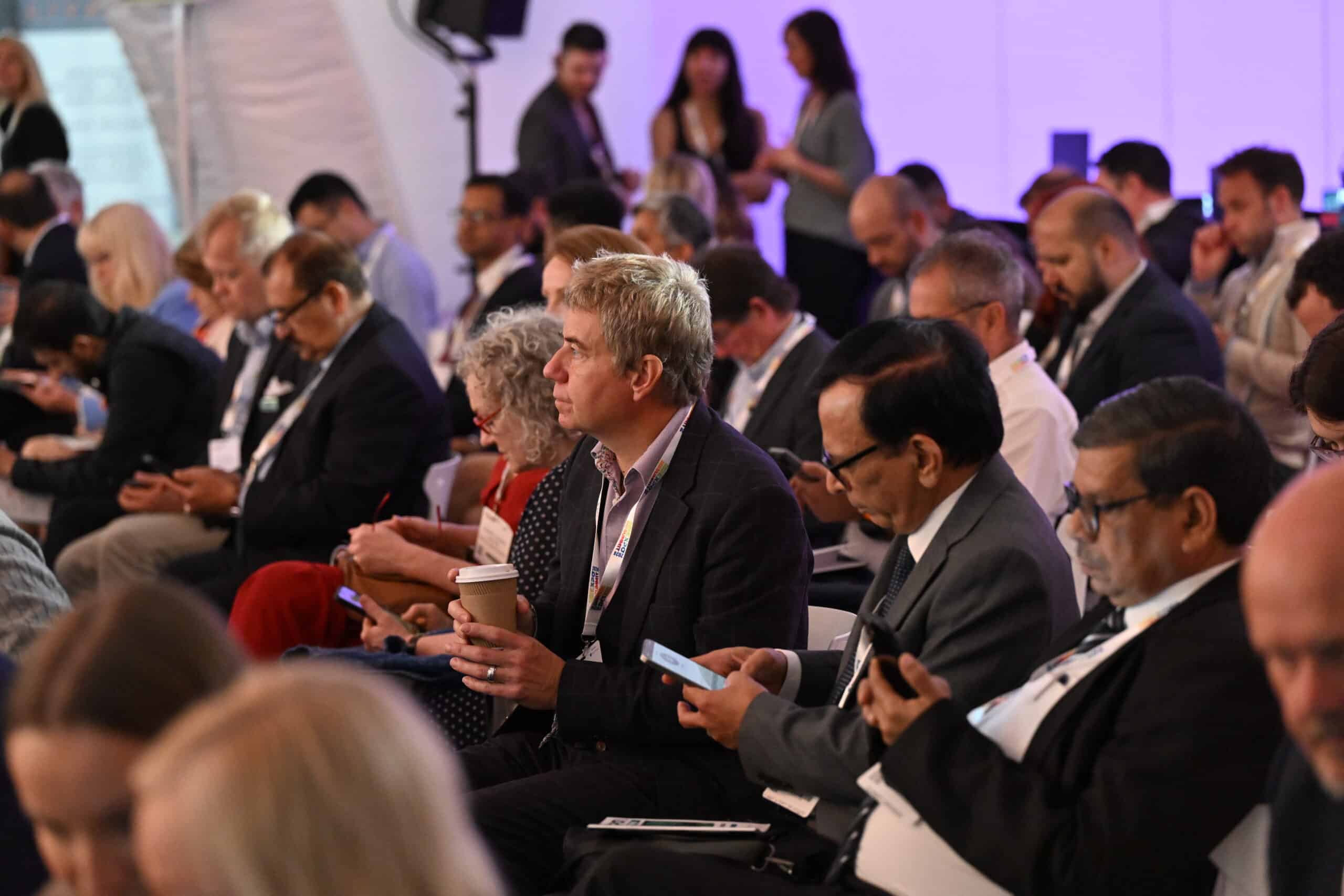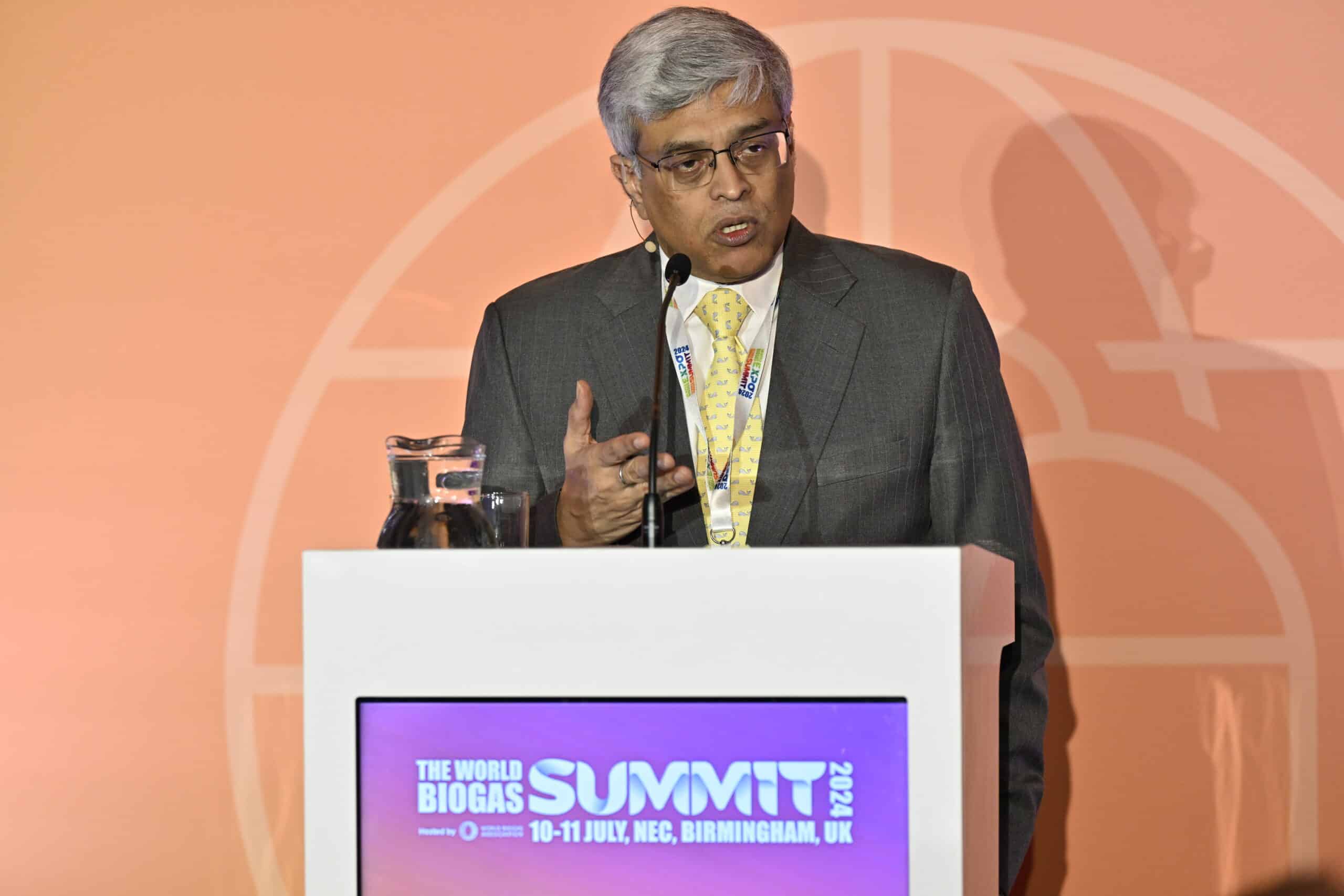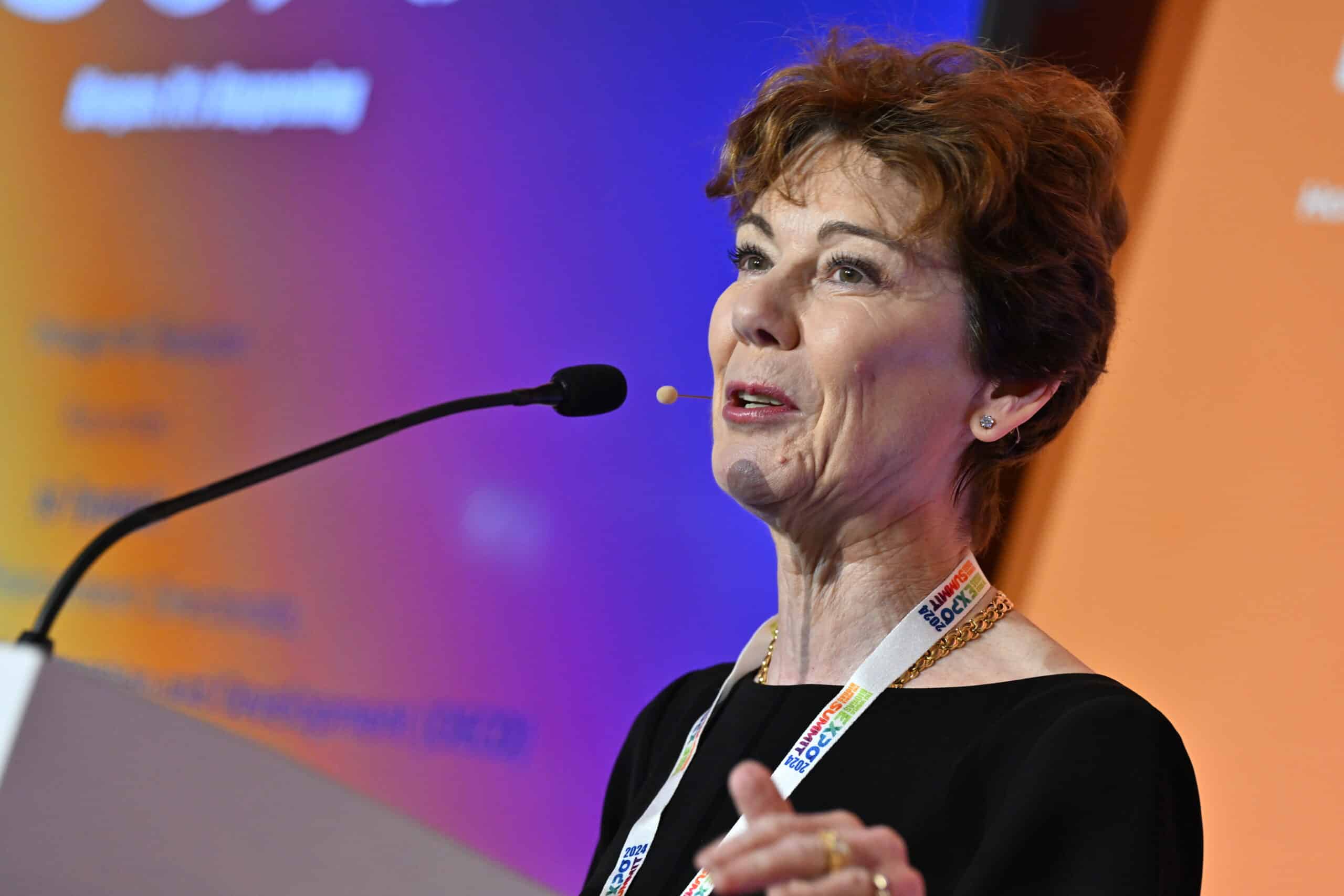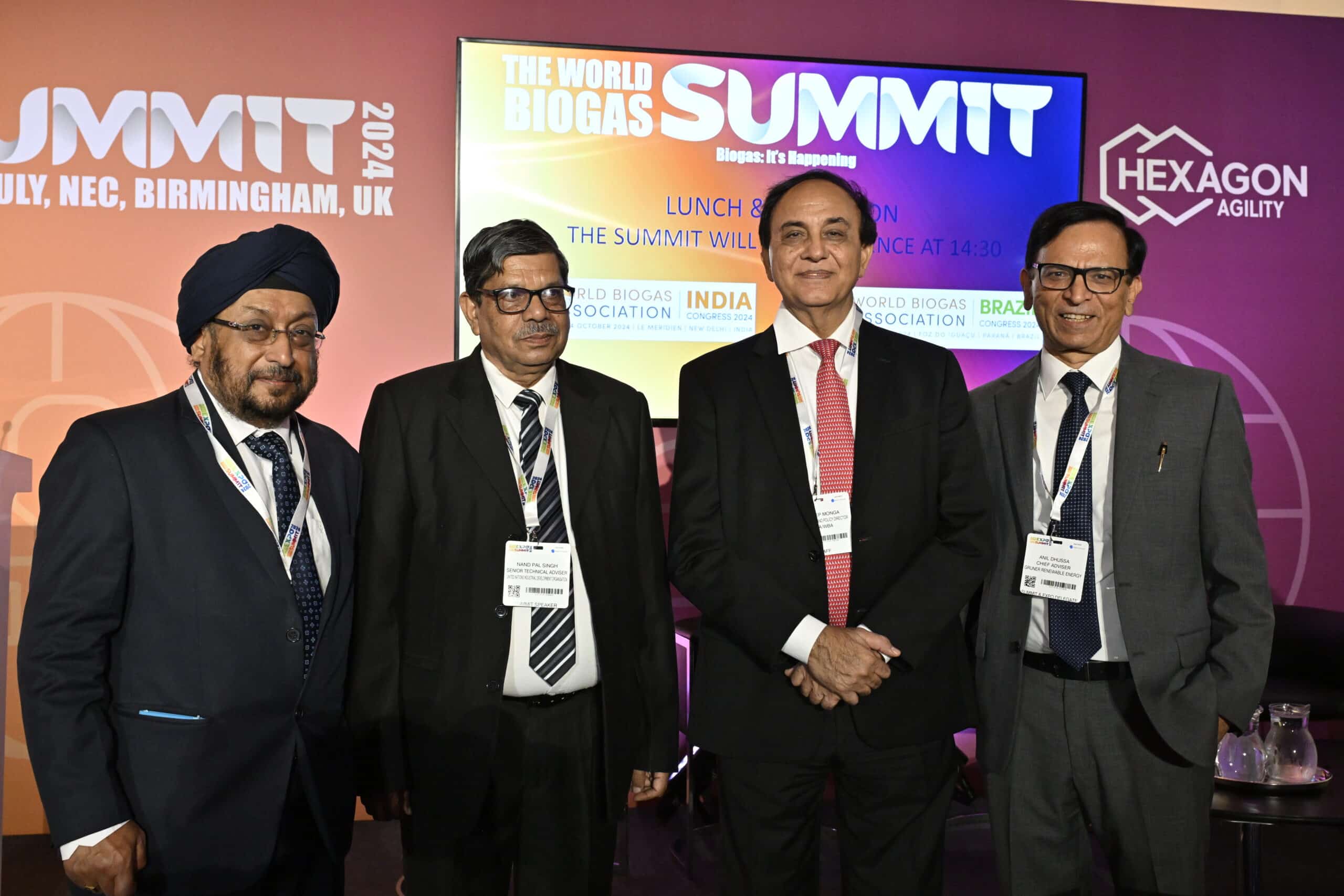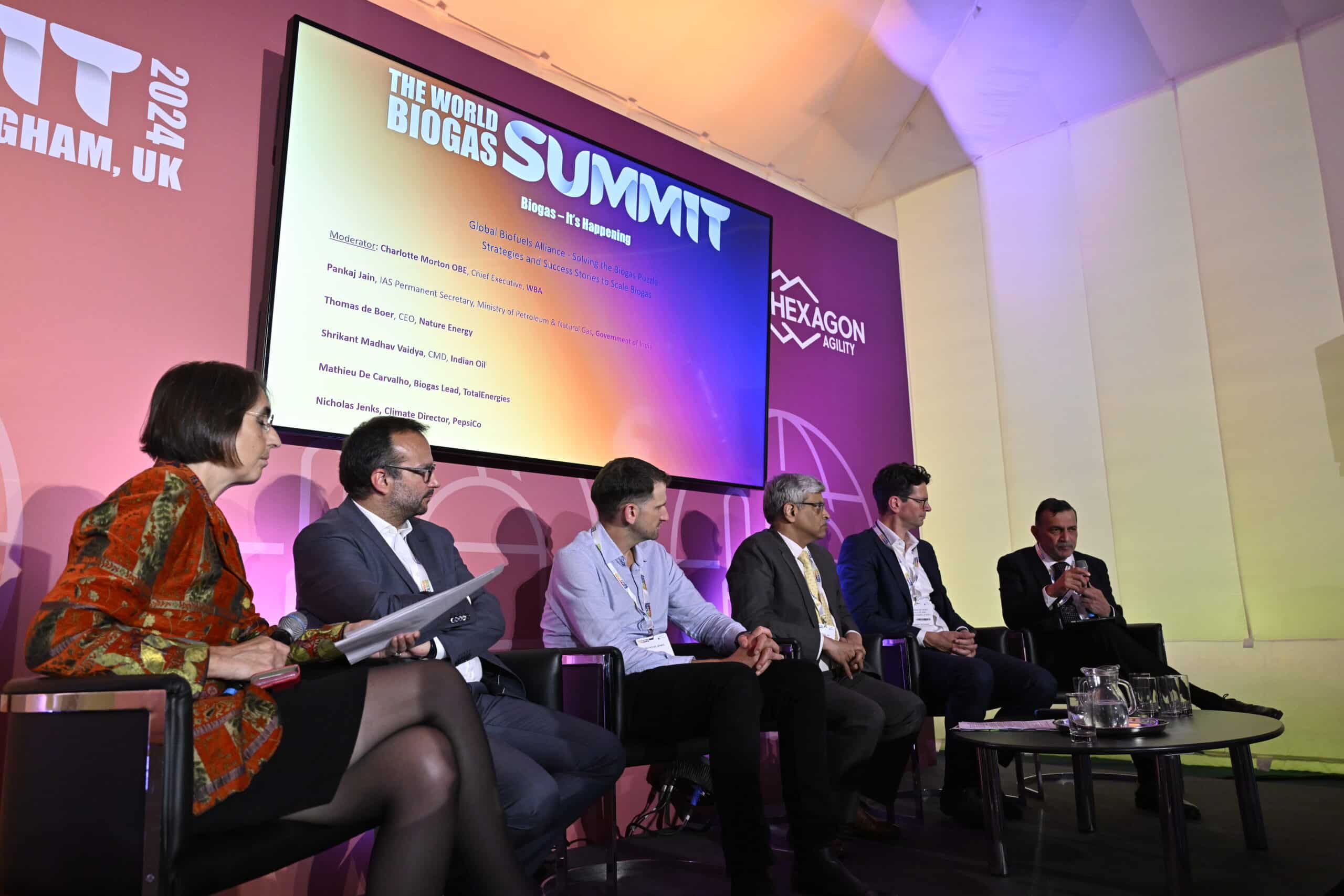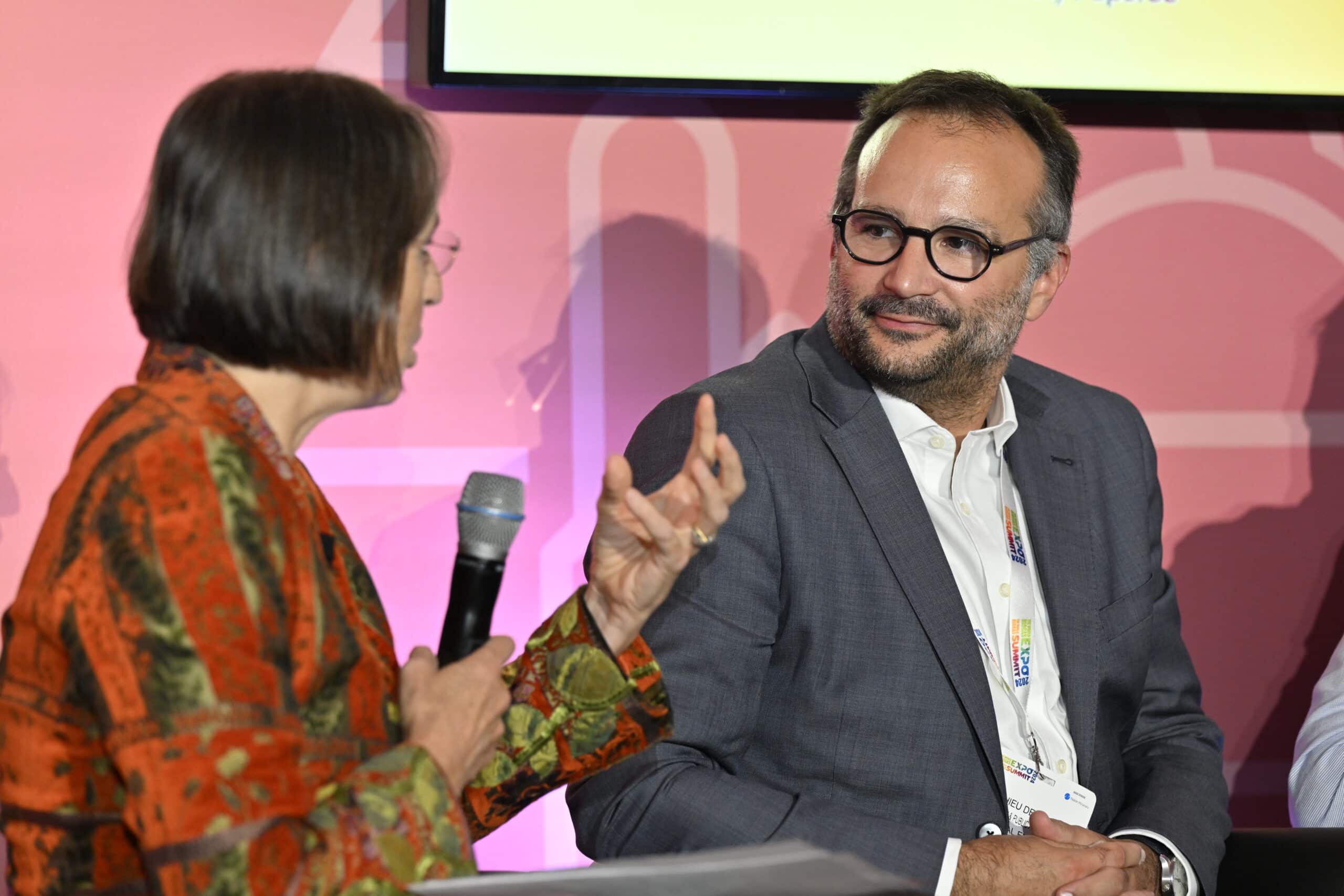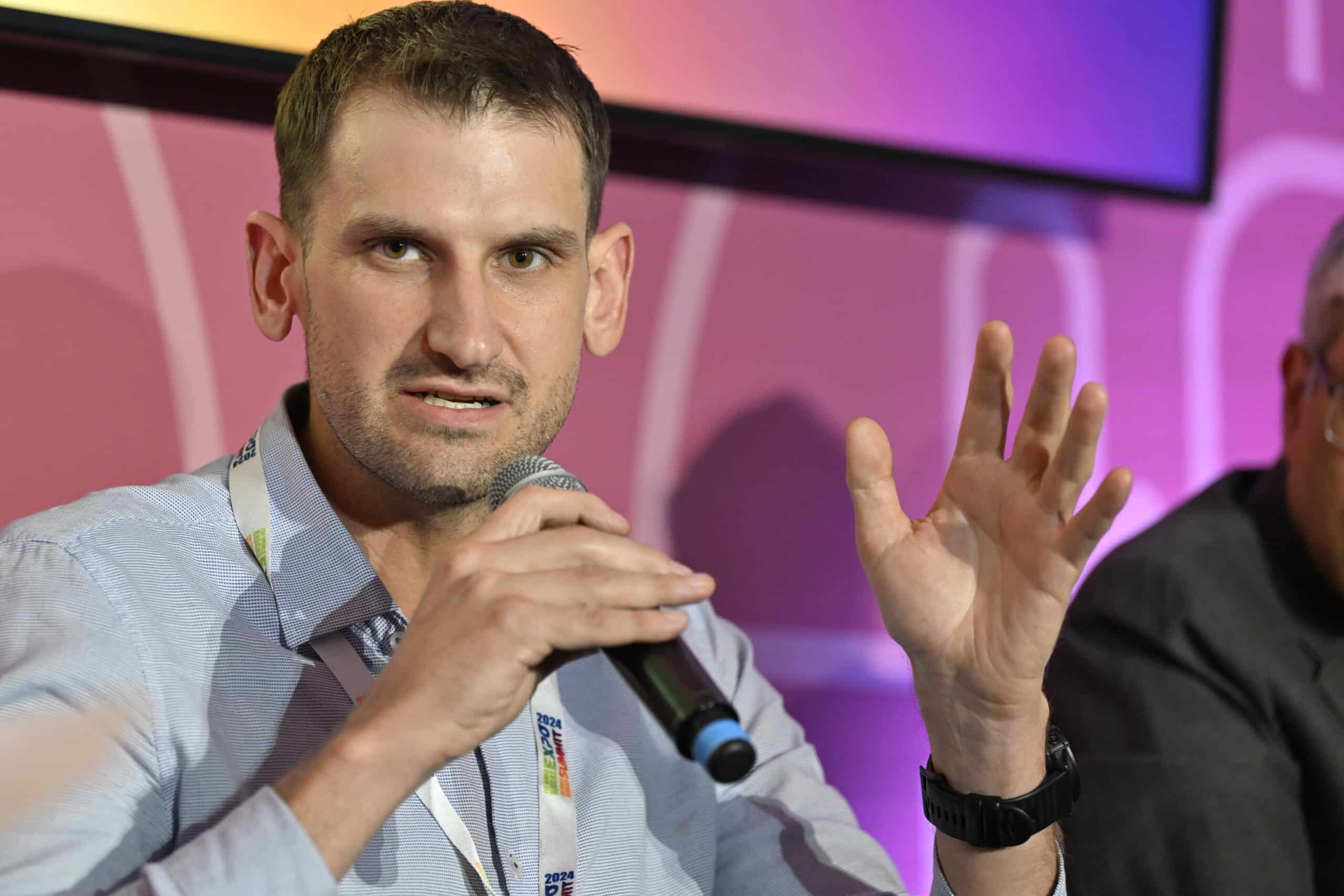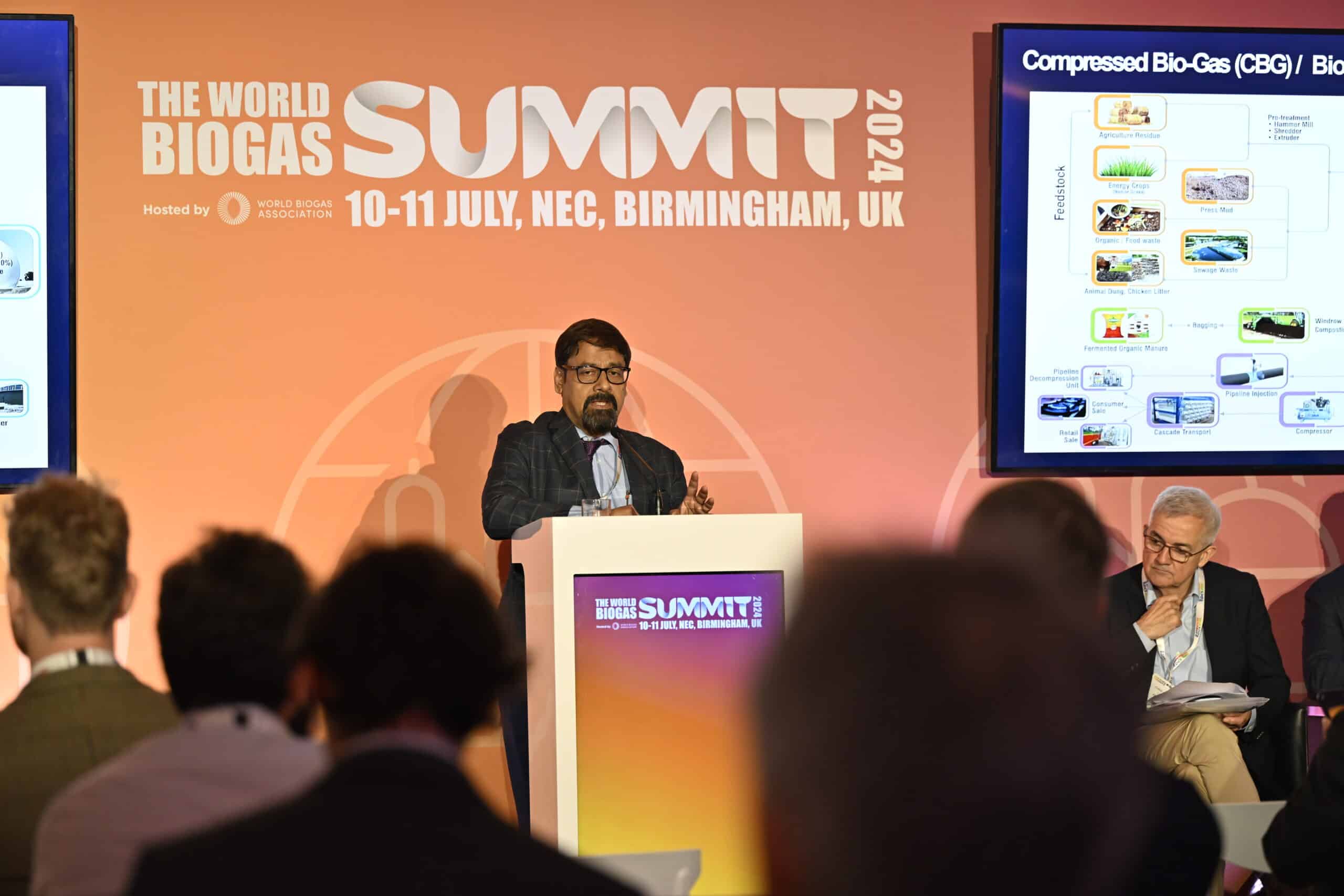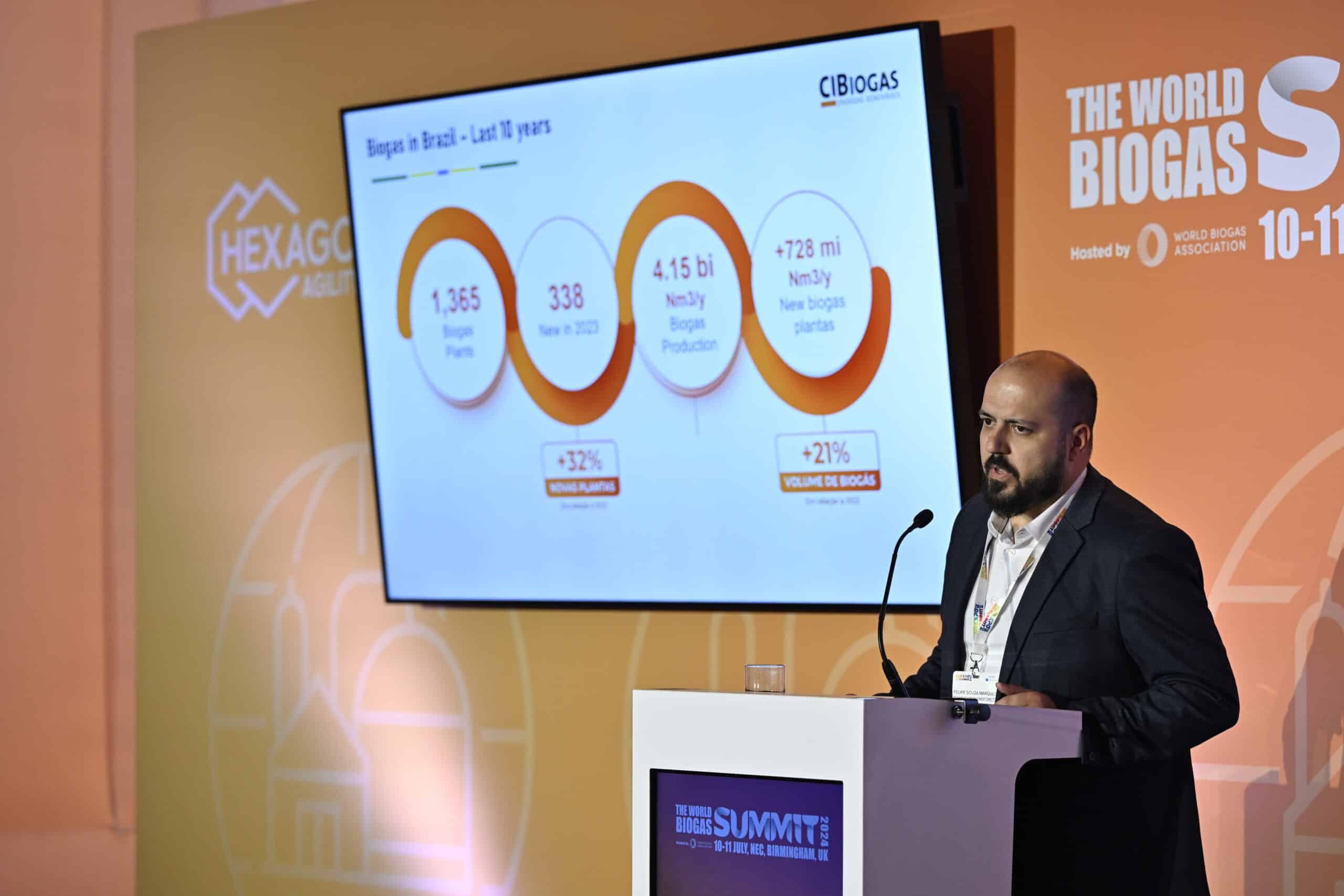WEDNESDAY, 10th July
09:30 – 09:45 Welcome and Introduction
Charlotte Morton OBE, Chief Executive, World Biogas Association (WBA)
09:45 – 10:30 Inaugural Session
Moderator: Charlotte Morton OBE, Chief Executive, WBA
Pankaj Jain, IAS Permanent Secretary, Ministry of Petroleum & Natural Gas, Government of India
Jo Tyndall, Director, Environment Directorate, Organisation for Economic Co-operation and Development (OECD)
Read more >>
Watch speeches by senior international, national, sub-national and regional government ministers and officials.
10:30 – 12:00 Global Context: Biogas – It’s Happening
Moderator: David Newman, Former President, WBA
Pradeep Monga, Senior Advisor and Director of Policy, WBA
Denise Mulholland, Director of Secretariat, Global Methane Initiative
Donovan Storey, Global Waste Hub Lead, Climate & Clean Air Coalition (CCAC)
Rana Adib, Executive Secretary, REN21 (Virtual)
Biljana Kulisic, Policy Officer, Directorate-General for Energy, European Commission
Read more >>
The International Energy Agency has forecast bioenergy (including biogas) to be second only to solar as the fastest-growing renewable source of energy between now and 2050 – displacing hydrogen.
In the last 10 years, in both developed and developing countries, biogas has grown exponentially. And with big investments from Goldman Sachs, TotalEnergies and Shell amongst others over the last few years, the landscape has changed significantly. We are now at inflection point in the growth of the biogas sector.
In this session, we will provide a global policy and market overview for biogas, an aggregate outlook as to its continued growth based on the work of many reputable forecasters and outline the social, economic and environmental co-benefits of supporting the increased development of biogas and how it can help to deliver the Sustainable Development Goals, interim net zero targets, and the Global Methane Pledge by 2030 on an international level.
12:00 – 13:30 Making Biogas Happen (#MBH) Programme
Moderator: Charlotte Morton OBE, Chief Executive, WBA
Henrique Bezerra, Regional Lead Latin America, Global Methane Hub
Sarika Jain, Policy Lead, WBA
Mathieu De Carvalho, Biogas Lead, TotalEnergies
Pier Paolo Cella Mazzariol, Chairman, Entsorga Italia S.p.A
Read more >>
WBA’s driving mission is to develop the circular economy of organic wastes, a system where materials never become waste, pollution is prevented, nature is regenerated, and carbon footprints are reduced. We will do this by taking a strategic approach to the promotion, and ultimately the growth, of biogas as a renewable alternative to fossil fuels as well as a decarbonisation solution for transport, industry and agriculture, some of the hardest-to-decarbonise sectors – in other words, we are focused on “Making Biogas Happen”.
We have less than six years until 2030 by which point the world must have delivered half of the Global Methane Pledge to have any chance of being net zero by 2050.
For the biogas sector to fulfil its full contribution to this effort, that means we have just six years to build hundreds of thousands of biogas plants all over the world. Yet in some parts of the world, it can take even longer than that just to secure a permit.
WBA’s Making Biogas Happen Programme is unprecedented in terms of its scale and ambition. To assist governments and regulators in every country across the world, we are compiling a comprehensive and ready-to-implement programme which can be delivered in any jurisdiction with minimal delay to enable the industry to grow and scale-up at the pace it needs to across the world.
In this session, we will provide an overview of the programme and provide a rationale for how we propose to contribute to support and actualise the ambition and growth of the industry by 2030 that we heard about in the previous session.
13:30 – 14:30 Lunch
+ Media Briefing
14:30 – 15:30 Introducing the Global Biofuels Alliance: Solving the Biogas Puzzle: Strategies and Success Stories to Scale biogas
Moderator: Charlotte Morton OBE, Chief Executive, WBA
Pankaj Jain, IAS Permanent Secretary, Ministry of Petroleum & Natural Gas, Government of India
Thomas de Boer, CEO, Nature Energy
Shrikant Madhav Vaidya, CMD, Indian Oil
Mathieu De Carvalho, Biogas Lead, TotalEnergies
Nicholas Jenks, Climate Director, PepsiCo
Read more >>
Global Biofuels Alliance (GBA) is a multi-stakeholder alliance of Governments, International Organizations and Industries, which was launched by India as the G20 Chair in 2023. The GBA’s mandate is to bring together the biggest consumers and producers of biofuels to drive development and deployment of biofuels at scale. As a global initiative, GBA aims to position biofuels in general and biogas in particular as a key to energy transition and contribute to jobs and economic growth. World Biogas Association (WBA) is a founding member of the GBA.
Currently, only 2% of organic waste is processed globally through anaerobic digestion to produce biogas. Biogas can significantly contribute to the global energy mix, with potential to meet up to 20% of global gas consumption. With the right strategies, this could scale even further. In this session, we will explore practical strategies and real-world success stories that have effectively led to increased biogas adoption in various regions of the world. Building on these best practices, the discussion will also cover ways to amplify these learnings through public private partnerships.
15:30 – 17:15 #MBH in Europe
Moderator: Giulia Ceccarelli, Head of External Affairs, WBA
Thomas de Boer, VP for Renewable Natural Gas, Shell and CEO, Nature Energy
Victor Bernabeu, Director, Eurogas
Filippo Munna, Sales Director Mobile Pipeline, EMEA + Asia, Hexagon Agility GmbH
Andy Cooper, Head of Energy Efficiency, Clarke Energy
Richard Kennedy, CEO, Carbon AMS
Rob McKeon, Head of Business Development UK, Renewable Gases Europe, ENGIE
Read more >>
Europe has one of the most mature biogas markets in the world.
With the industry now being supported and underpinned by the EU Green Deal, in this session we will hear about the latest industry trends and developments, challenges and opportunities that the industry are currently faced with and the lessons that can be imparted to emerging markets for biogas and other renewable sources of energy based on our sector’s experience.
17:15 – 17:30 Day 1 Closing Remarks
Pradeep Monga, Senior Advisor and Director of Policy, WBA
THURSDAY, 11th July
09:30 – 09:35 Welcome and Overview of Programme Day 2
Charlotte Morton OBE, Chief Executive, WBA
09:35 – 10:00 Keynote Addresses
Professor Rachel Kyte, Former Special Representative of the Secretary-General of the United Nations for Sustainable Energy; Former CEO, SE4ALL, & Former Vice President, World Bank Group (Virtual)
Read more >>
The CCAC’s High-Level Advocate for Finance; Former Special Representative of the Secretary-General of the UN for Sustainable Energy and Former VP of the World Bank opens Day 2 of the World Biogas Summit with a high-level keynote address on biogas as an integral global clean energy solution.
10:00 – 10:30 #MBH – Scaling Investments and Financing
Moderator: K.S Popli, Country Manager, WBA India & Former CMD, Indian Renewable Energy Development Agency (IREDA)
Michael Ware, Project Supervisor, Green Giraffe
Read more >>
Finance is mobilising behind biogas. Good projects get good finance. Come to this session to find out what investors are looking for to provide backing to your biogas project.
10:30 – 11:00 #MBH: CEO Forum
Moderator: Charlotte Morton OBE, Chief Executive, WBA
Shrikant Madhav Vaidya, Chairman, Indian Oil
Read more >>
While many economies around the world stagnate and deflate, the green economy is growing. In fact, net zero represents the greatest commercial opportunity of the 21st century. Many of the world’s largest companies are investing in green gas either in becoming producers themselves or as off-takers to as integral part of their sustainability plans and clean energy transition.
In this session, we will hear a high-level address and follow-up discussion from and with a visionary leader from one of the world’s foremost companies, Indian Oil, to tell us where biogas sits in their business and sustainability plans between now and 2050.
11:00 – 11:45 #MBH: Women in Biogas
Moderator: Kathy Puffer, Mighty Network Host, biogaseducation.com
Kavya Koonampilli, Associate Policy Lead, WBA
Judith Marera, Founder & CEO, Lanforce Energy
Angela Bywater, Environmental Biotechnology Network Manager, University of Southampton
Read more >>
As with the energy sector more widely, women in the biogas industry are under-represented. A WBA survey conducted in 2022 revealed that women make up less than 30% of the workforce in half of the companies that responded, 55% of companies have less than a quarter in senior leadership roles and 21% had no women at all in senior positions.
It is becoming increasingly evident that addressing the gender employment gap and promoting women’s participation in the biogas sector require comprehensive strategies encompassing gender equality policies, leadership development, inclusive recruitment practices, fostering workplace cultures, and community engagement.
In this session, the WBA will present findings from its 2024 survey showing an indicative landscape of gender representation in the sector. We will also hear from experts about creating a more equitable and diverse workforce with women playing a leadership role within the biogas industry.
11:45 – 12:30 Lunch
12:30 – 13:30 #MBH : What Really Drives Market Demand for Biomethane
Moderator: Chris Huhne, Chair, ADBA
Wouter Kuipers, Managing Director, ACT Commodities
Luciano Figueredo, Project Manager, Instituto Totum
Shantanu Gupta, Director Technical, Indian Oil
Read more >>
As the sector transitions from government-subsidy support to more market-based support, how the industry operates and the value of what it produces is driven by and determined by the market.
In this session, we will assess what and where the demands for biogas and biomethane are, what the most viable uses for it are and how to access it for any of these purposes when you are looking to secure an off-take agreement.
13:30 – 14:15 Sustainable & Smart Cities – The Engine Behind #WasteToValue and #MBH
Moderator: Pradeep Monga, Senior Advisor & Director of Policy, WBA
N.P. Singh, Senior Technical Advisor, Sustainability Cities Programme, UNIDO India
Gisela Provasi, LOW-Methane Project Director, C40 Cities
Carlos RV Silva Filho, President, ISWA
Read more >>
Sustainable cities are vital for ensuring high quality of life for urban residents. Central to the concept of sustainable cities is effective waste management. Incorporating biogas production through anaerobic digestion into waste management systems is crucial to building sustainable cities.
By harnessing the potential of organic waste as a resource, cities can simultaneously address environmental challenges, enhance energy security, and promote economic prosperity.
Adopting holistic approaches to waste management that prioritize resource recovery and renewable energy (biogas) generation is essential for creating resilient and livable urban environments for future generations.
In this session, we will showcase the potential circular cities – incorporating biogas – can offer their residents.
14:15 – 15:15 #MBH Global & National Trends: Emerging Markets
Moderator: Pradeep Monga, Senior Advisor & Director of Policy, World Biogas Association
Felipe S Marques, Technology Development Director, CIBiogas
Gordon Ayres, Secretary-General, Southern African Biogas Industry Association (SABIA) (Virtual)
S. R. Meena, Scientist – ‘E’, Biogas Division, Ministry of New & Renewable Energy, Government of India
Read more >>
Unlike any other source of renewable energy, biogas is able to deliver home grown, distributed, baseload, storable and dispatchable green energy. A biogas plant can be as small and micro as a homemade one to power one home to an enormous site which has the capacity to generate heat, power, fuel or energy to benefit millions of people. It is also relatively fast to build a biogas plant compared to other sources of renewable energy, which must be a large consideration for both governments and the private sector in the drive towards net zero.
It is little wonder that all reputable forecasters predict colossal and transformative growth in the sector between now and 2050, with most of that growth coming from emerging markets – all of whom also have increasing populations, with increasing propensity for economic growth and energy demands.
In this session, we will hear from some of the markets where there is the greatest potential for the growth of the industry worldwide and illuminate some of the challenges and opportunities they have and discuss how these can be negotiated and maximised respectively.
15:15 – 15:45 Day 2 Closing Remarks
Charlotte Morton OBE, Chief Executive, WBA
Pradeep Monga, Senior Advisor and Director of Policy, WBA
Read more >>
Hear a communiqué and get a glimpse of the World Biogas Summit’s ‘Outcome Document.’
“
“Attending the World Biogas Expo and Summit 2024 was an incredibly enriching experience. The event brought together industry leaders, innovators, and experts, providing invaluable insights into the future of biogas technology. The presentations were informative, the networking opportunities were outstanding, and the overall organization of the event was top-notch. It’s a must-attend for anyone serious about advancing in the biogas industry.”
Timothy Owili, CEO, Green Wave Africa




